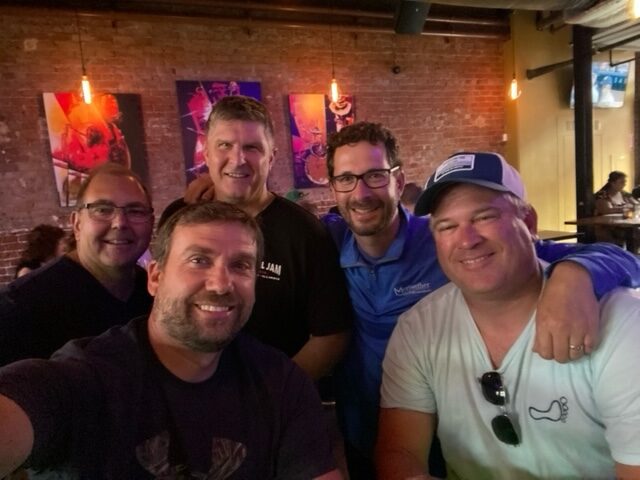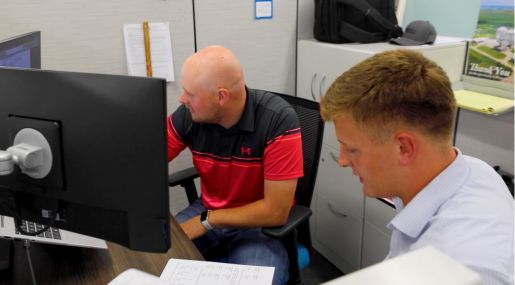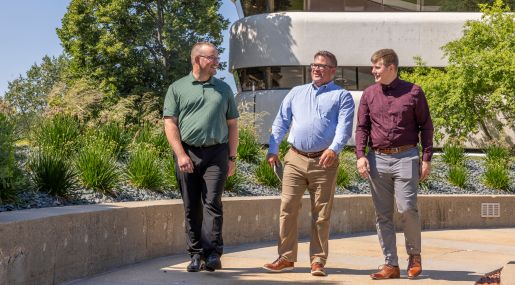
Are You Making This Hiring Mistake?
Are you struggling to find the perfect candidate to fill a role in your business or organization?
The hiring process can feel like a never-ending cycle—sorting through resumes, managing interviews, and still not finding that perfect match. It’s frustrating to onboard employees only to see them leave shortly after, or to discover that your chosen candidate just doesn’t click with the team—a costly hiring mistake to avoid.
Trying to find a balance between technical qualifications and cultural alignment is not easy.
But here’s the truth: the best hires don’t just check every technical box—they align with your company’s values, culture, and long-term vision.
In this post, we’ll explore the importance of shifting your hiring focus toward cultural fit, how it can enhance your team dynamics, and practical strategies for bringing both fit and skills into your hiring process.
Get ready to rethink your hiring process and discover how hiring for fit can transform your team for the better. Let’s go!

Hiring For Fit > Technical Skills
When we say “hire for fit,” we’re not saying technical skills don’t matter—they absolutely do. However, fit goes beyond technical expertise. It’s about hiring someone who understands your organization’s purpose, meshes with team dynamics, and contributes to meaningful relationships within the team.
Employees who feel a sense of belonging are more likely to stay committed to their roles. They’re not just working for a paycheck—they feel invested in their work and in the success of their colleagues.
This emotional connection fosters loyalty and reduces turnover.
According to research from the Harvard Business Review, companies with strong cultural alignment experience up to 30% lower turnover rates.
Teams with solid relationships aren’t just functional…they THRIVE. Collaboration flows more naturally when employees connect on both professional and personal levels, creating an environment where people feel valued and heard.
This alignment creates a ripple effect where employees invest in each other’s success, amplifying their individual contributions to long-term success within your organization.

Why Focusing Only on Skills Is a Hiring Mistake to Avoid
Focusing solely on technical expertise can backfire.
Sure, the candidate might meet every technical requirement, but if they don’t align with your values or team culture, the results can be disruptive. Mismatched hires often cause friction, disrupt workflows, and, in some cases, require costly replacements—making this a hiring mistake to avoid.
On the other hand, employees who feel connected and engaged with their peers collaborate better, adapt to challenges faster, and are more motivated to grow within the organization.
They’re not just checking off tasks—they’re contributing to something larger, which increases their overall impact.
We understand that balancing technical skills and cultural fit isn’t easy. It requires a thoughtful approach to interviewing and a deeper understanding of what each candidate can bring to the bigger picture.
Hiring for technical skills alone might get the job done, but hiring for both skills and fit builds a team that thrives—and sticks around for the long haul.

How to Avoid the “Skills-Only” Hiring Trap
“You hire character. You train skill.” – Peter Schutz, former CEO of Porsche.
To avoid the common hiring mistake of focusing only on technical abilities, consider this: A candidate’s attitude is just as critical as their experience. A great hire grows with the organization, adjusts to change, and fits seamlessly into your team dynamic.
We have a few practical tips to help you hire for both fit and skills:
1. Define Your Company’s Values and Culture – Before you start interviewing, ensure your team is aligned with your core values and culture. Understanding what kind of person thrives in your environment helps you spot the right candidates faster.
2. Ask Behavioral Interview Questions – Incorporate questions that explore how candidates think, solve problems, and collaborate with others. For example, “Tell me about a time you faced a major challenge at work” can reveal how they operate under pressure.
3. Involve the Team in the Hiring Process – Hiring isn’t just the manager’s job—it’s about building a team that works well together. Include key team members in interviews to assess how candidates might fit into the group.
4. Consider Attitude, Curiosity, and Adaptability – Candidates with the right mindset—those who are curious and eager to learn—are often more valuable than those with every technical box checked. Technical skills can be learned, but qualities like adaptability and a positive attitude are harder to develop.
5. Don’t Rush the Process – A hiring mistake to avoid at all costs is rushing through the hiring process. While filling the role quickly may feel urgent, waiting for the right person ensures long-term success. It’s better to invest time upfront than deal with turnover later.

Building a Strong, Fit-First Team
Hiring for fit doesn’t mean lowering the bar for technical skills—it means setting a higher standard for what truly matters: alignment, relationships, and shared values.
A strong hire does more than just complete tasks—it enhances your culture and helps the entire team grow. Focus on building a team that’s not just capable but connected—ready to collaborate, innovate, and grow together.
When they are committed to the bigger picture, they’ll bring out the best in each other.
And that’s when the magic happens—your team becomes more than just employees; they become a unified force driving your company forward.

We hope this insight gave you a fresh perspective on hiring for fit, not just technical skills.
We believe in hiring for the long game. We’ve learned that the most impactful hires embody our values, build strong relationships, and feel a sense of belonging.
They’re the ones who elevate the team, not just through their skills, but through their attitude.
We understand how overwhelming hiring can feel—finding someone who’s both skilled and aligned isn’t easy. But trust us: the right person makes all the difference.
By shifting your mindset and looking beyond resumes, you’ll build a team ready to grow with you—and that’s the kind of investment that pays off.


